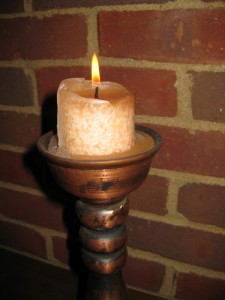Again and again, in my own mind and through interactions with others, questions arise about the value of a prayerful interior life—both for an individual and a faith community. In this world where people suffer without clean water or shelter, safety or justice, there is work to be done. The need for tangible, material help is clear; the value of what the contemplative has to offer is less apparent. Prayer stirs us to compassion and action, but is it more than a means to that end? Is spiritual practice important in caring for people in need?

I do know that my quality of life, as well as survival, is shaped not only by physical needs being met, but by relationships and environment. Life is fostered in finding meaning, and a sense of connection to the reality beyond mundane existence. All these elements are necessary not only to sustain life, but to allow the flourishing that permits me to have something to offer another person.
But none of us can focus on everything. We need doctors and nutritionists to share their knowledge of the body. We need scientists and knowledge workers to lend their expertise in solving problems. We need business leaders to provide products and services that make life better for their customers as well as jobs that bolster the lives of their employees.
We need teachers and counselors who understand how people learn and grow to help all of us live fuller, healthier lives. We need artists, poets, and visionaries to show us new possibilities. We need all kinds of people with open eyes and generous hearts to lend their strength in meeting the unmet needs that they encounter, and to help others become part of the effort.
In the midst of challenging lives, we also need the guidance of those who tend the soul. We need spiritual practices carried forward from ancient days and adapted to the times in which we live. We need prayers and meditations from writers who dwell closely with the spirit, and models of community from those who reside together with sacred intention.
I saw this recently in conversation with a generous but severely stressed friend. She is committed to raising her children responsibly, working for a non-profit organization she believes in, volunteering within her community of faith, and giving creative expression to her life through her writing. All of these are important, but her mountain of commitments had become an avalanche. Her ability to give with any sense of peace and purpose depended on reconnecting to the source of life.
Like my friend, we all need the strength that spiritual grounding offers. When everyday demands weigh us down, we need the sense of meaning and wider perspective that comes through a connection with the divine. Those more practiced at cultivating their spiritual life can help.
The contemplative aspect of life fosters all our endeavors. It nourishes the body of believers, feeding the spirit as we go forth to do our work. Spiritual practice is one of God’s callings. Sharing it is a way to love others. It yields gifts that soothe a hurting world, and teachings that are a blessing for all.
How are prayer and service related for you?
Susan Christerson Brown




